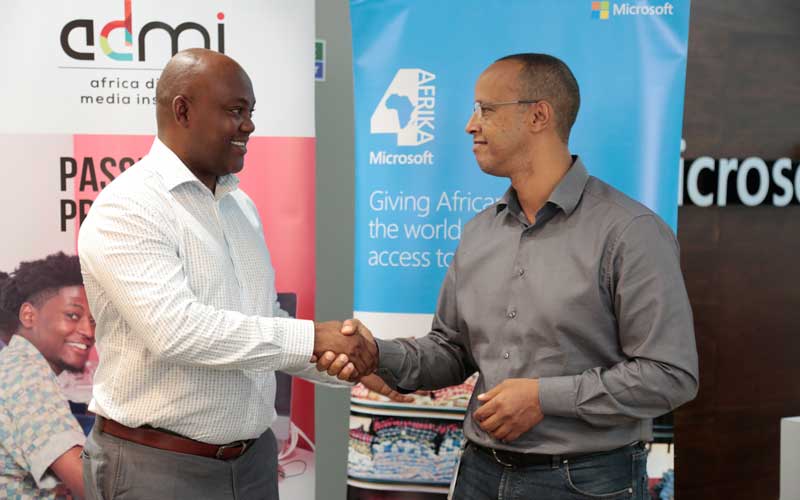×
The Standard e-Paper
Smart Minds Choose Us

ADMI Founding Director Wilfred Kiumi (left) with Microsoft East Africa Country Manager Sebu Haileleul (right) after signing the. The deal is geared towards opening an App Factory that will see young graduates develop a broader range of ICT and workplace skills fundamental to success in the digital age. [James Wanzala, Standard]
The Africa Digital Media Institute (ADMI) has collaborated with Microsoft through its 4Afrika Initiative to open a game and software development factory.